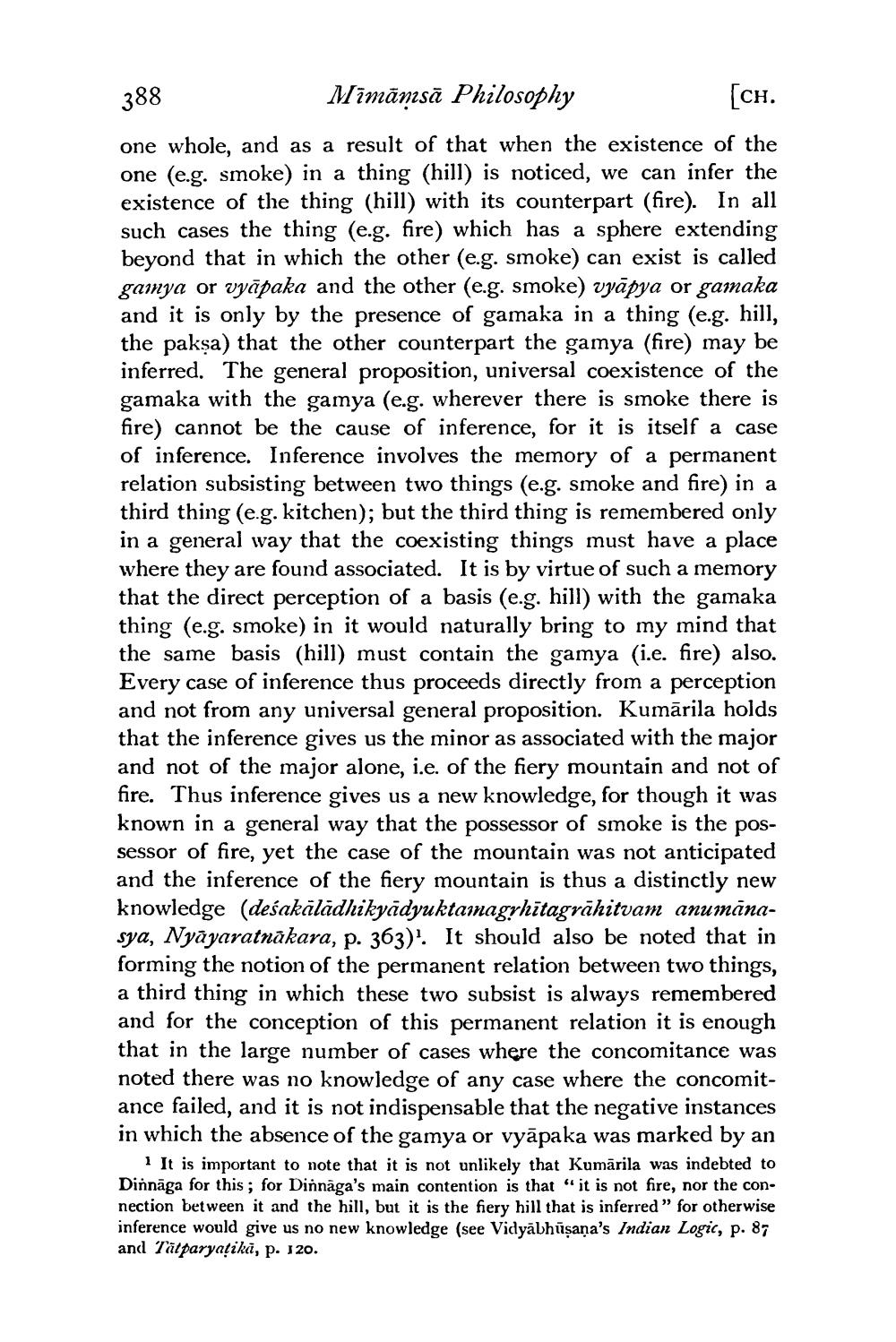________________
388
Mīmāmsā Philosophy
[CH.
one whole, and as a result of that when the existence of the one (e.g. smoke) in a thing (hill) is noticed, we can infer the existence of the thing (hill) with its counterpart (fire). In all such cases the thing (e.g. fire) which has a sphere extending beyond that in which the other (e.g. smoke) can exist is called gamya or vyāpaka and the other (e.g. smoke) vyāpya or gamaka and it is only by the presence of gamaka in a thing (e.g. hill, the paksa) that the other counterpart the gamya (fire) may be inferred. The general proposition, universal coexistence of the gamaka with the gamya (e.g. wherever there is smoke there is fire) cannot be the cause of inference, for it is itself a case of inference. Inference involves the memory of a permanent relation subsisting between two things (e.g. smoke and fire) in a third thing (e.g. kitchen); but the third thing is remembered only in a general way that the coexisting things must have a place where they are found associated. It is by virtue of such a memory that the direct perception of a basis (e.g. hill) with the gamaka thing (e.g. smoke) in it would naturally bring to my mind that the same basis (hill) must contain the gamya (i.e. fire) also. Every case of inference thus proceeds directly from a perception and not from any universal general proposition. Kumārila holds that the inference gives us the minor as associated with the major and not of the major alone, i.e. of the fiery mountain and not of fire. Thus inference gives us a new knowledge, for though it was known in a general way that the possessor of smoke is the possessor of fire, yet the case of the mountain was not anticipated and the inference of the fiery mountain is thus a distinctly new knowledge (deśakālādhikyādyuktamagrhītagrāhitvam anumānasya, Nyayaratnakara, p. 363). It should also be noted that in forming the notion of the permanent relation between two things, a third thing in which these two subsist is always remembered and for the conception of this permanent relation it is enough that in the large number of cases where the concomitance was noted there was no knowledge of any case where the concomitance failed, and it is not indispensable that the negative instances in which the absence of the gamya or vyāpaka was marked by an
1 It is important to note that it is not unlikely that Kumārila was indebted to Dinnaga for this; for Dinnaga's main contention is that "it is not fire, nor the connection between it and the hill, but it is the fiery hill that is inferred" for otherwise inference would give us no new knowledge (see Vidyabhuṣaṇa's Indian Logic, p. 87 and Tatparyatikā, p. 120.




